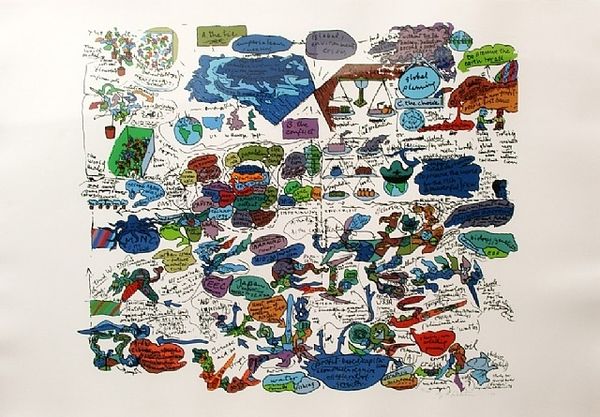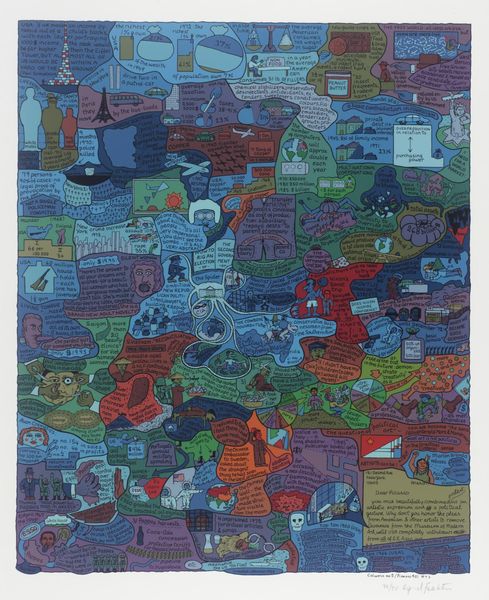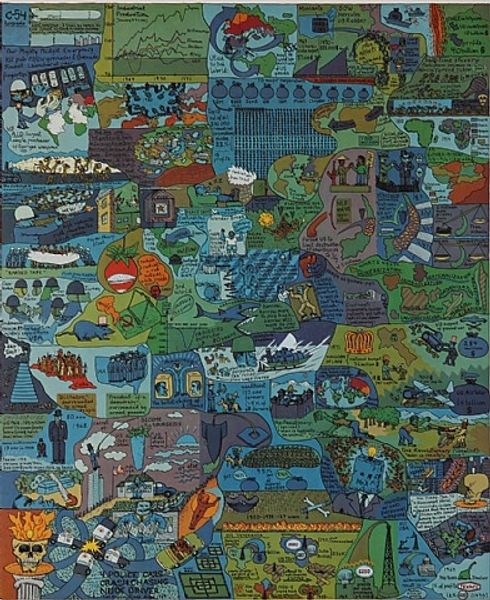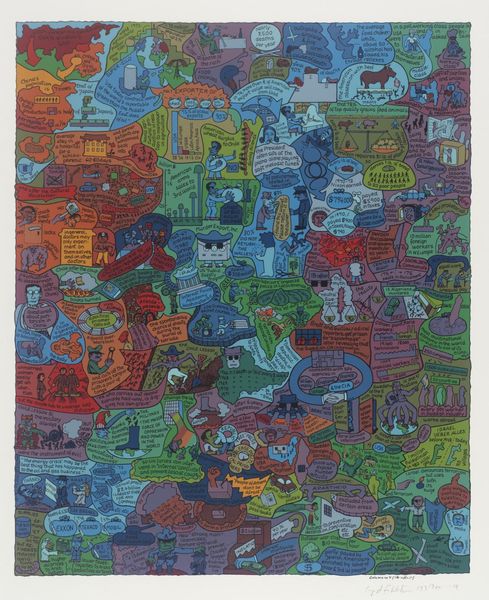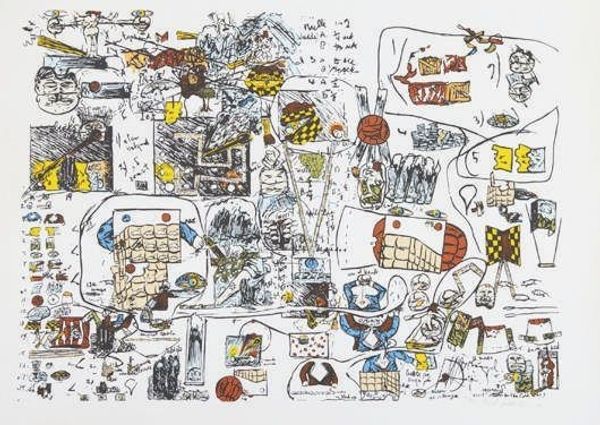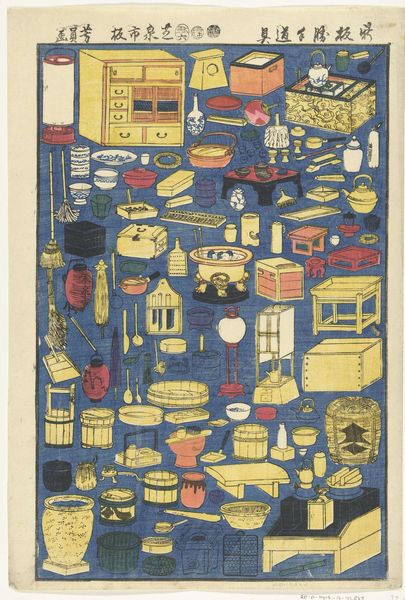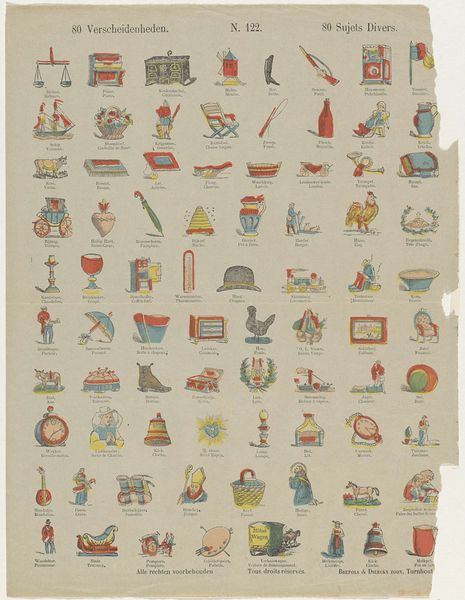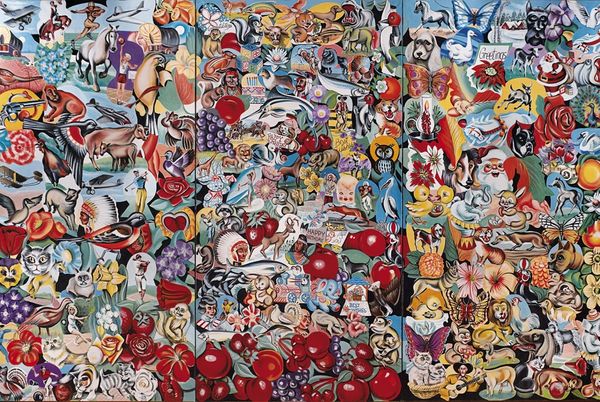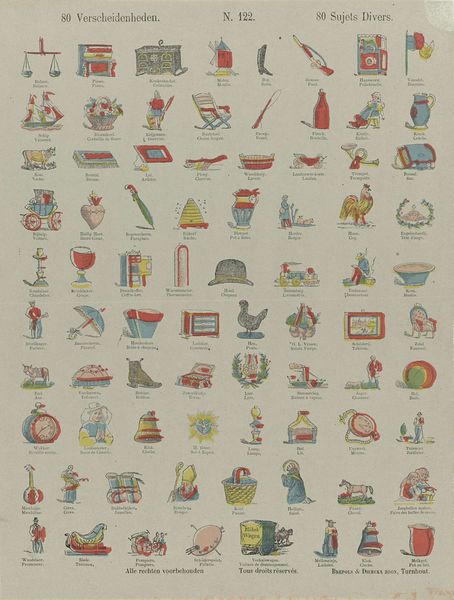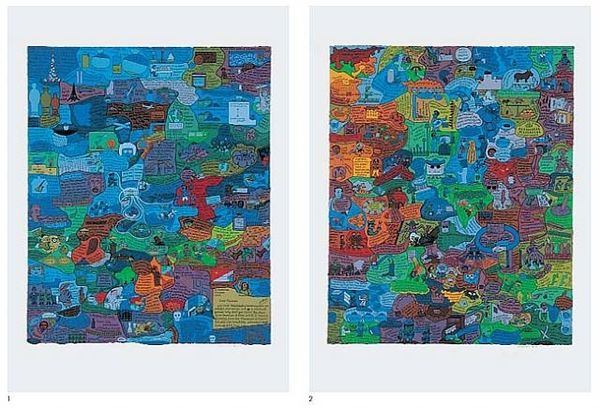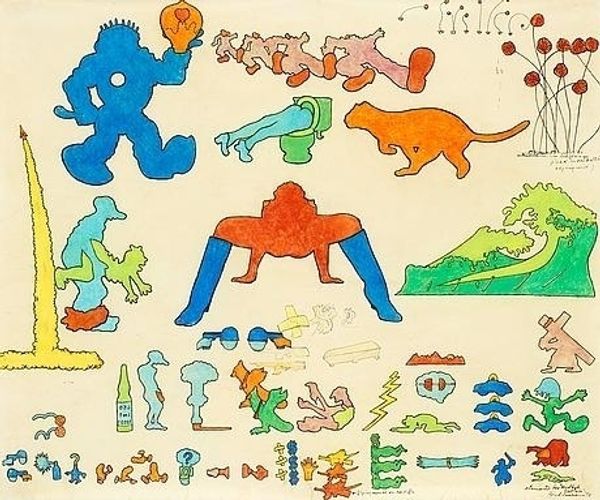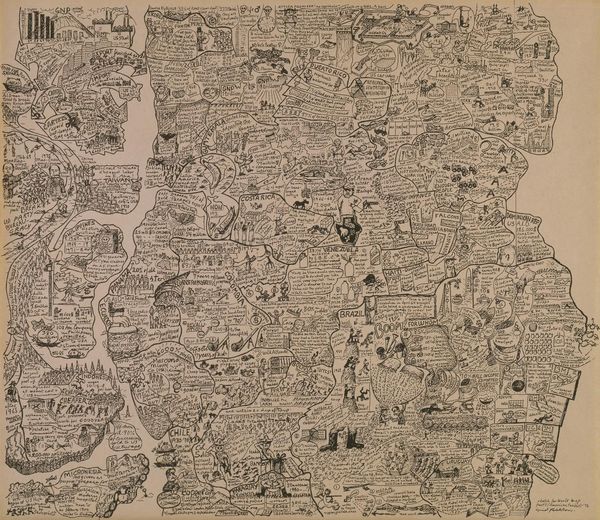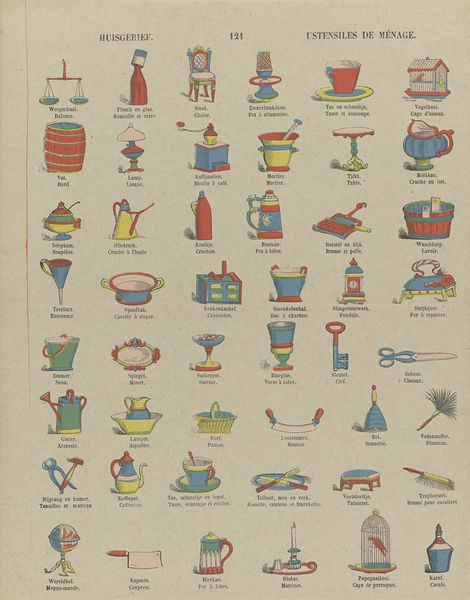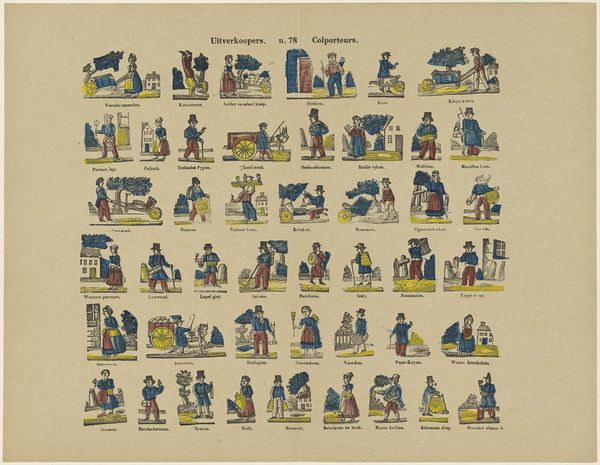
Copyright: Oyvind Fahlstrom,Fair Use
Editor: Here we have Oyvind Fahlstrom's "Notes 7 ('Gook'-Masks)" from 1975, a mixed-media piece with what looks like a collage of cartoonish images and text. It’s incredibly dense and chaotic, but almost like a visual diary. What do you see in this work, looking at it from your perspective? Curator: I see a powerful and disturbing visual archive, less about direct representation and more about cultural encoding. Fahlstrom uses these seemingly naive images, which in themselves are potent cultural symbols, to create a kind of visual language about power, race, and the lingering traumas of the Vietnam War era. Consider the repetition of certain motifs – do you notice any that resonate with particular events or anxieties of the time? Editor: The phrase “Gook-Masks” jumps out, which is obviously loaded. And there are images relating to Vietnam, plus things like Smokey Bear… it’s a strange mix. Curator: Exactly. “Gook” is a derogatory term, a dehumanizing label. By putting "masks" in quotation marks, Fahlstrom implicates the viewer in recognizing the absurdity of stereotypes. Even the juxtaposition of Smokey Bear – a symbol of American innocence and conservation – with the horrors of war highlights a deep cultural dissonance. It begs the question, what symbols were consciously adopted, and which were subconsciously absorbed during that period? Editor: So it’s not just about pointing fingers, but more about understanding how we internalize these symbols and what they represent? Curator: Precisely. He prompts us to dissect the iconography of a very turbulent time and to understand its enduring legacy. Editor: I never would have picked up on so many layers. Thanks for showing me how to look at the piece more critically. Curator: My pleasure. The power of images lies in their enduring impact on our collective memory.
Comments
No comments
Be the first to comment and join the conversation on the ultimate creative platform.
